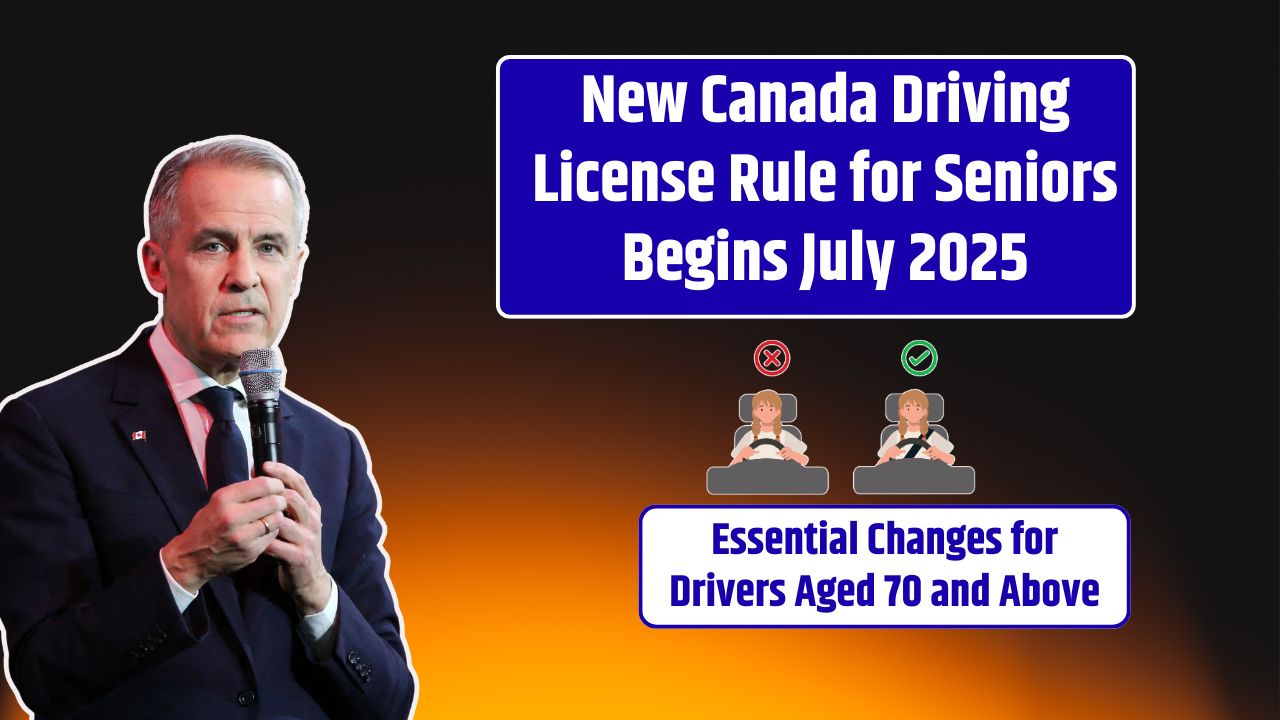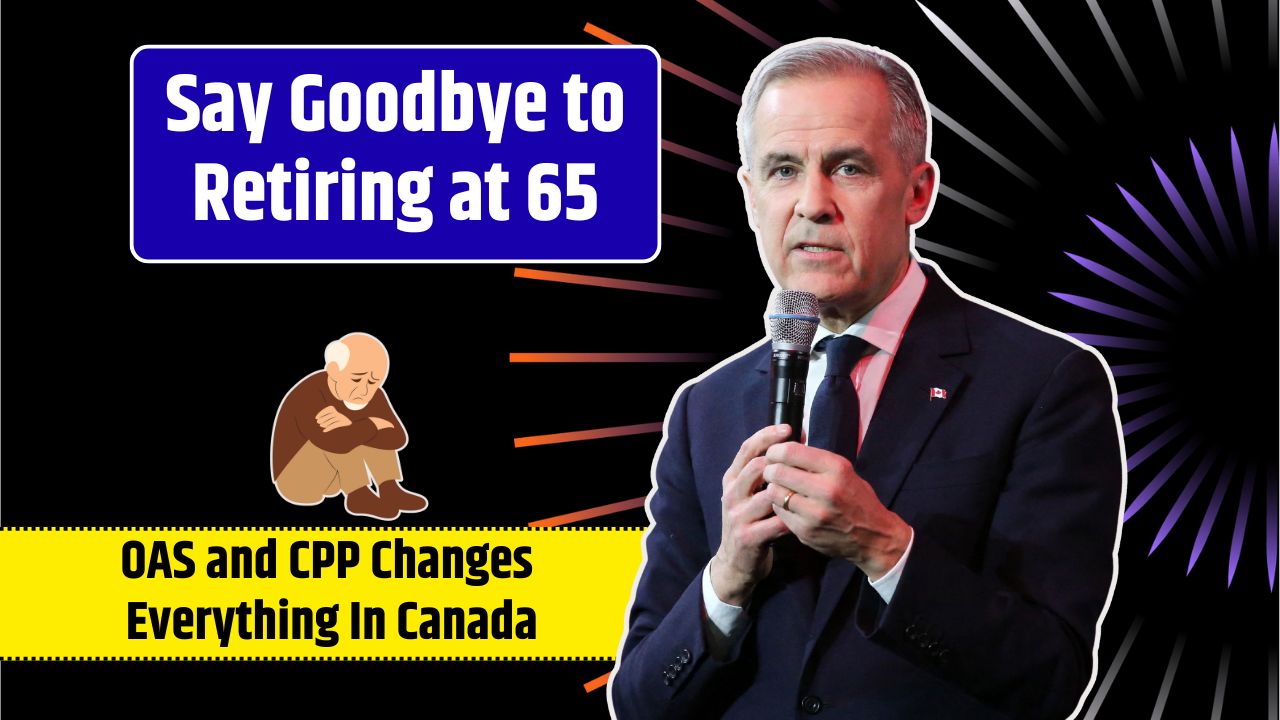Starting in July 2025, Canada will introduce significant updates to its driver’s license rules for seniors. These changes specifically target drivers aged 70 and older, aiming to enhance road safety while ensuring aging Canadians can maintain their independence. Here’s what senior drivers need to know about the new regulations and how they may affect their ability to drive.
Table of Contents
What’s Changing for Senior Drivers in Canada?
The federal and provincial governments are collaborating to roll out a standardized set of driving requirements for older adults. While provinces oversee licensing, the new framework introduces nationwide consistency on key points.
Here are the essential updates:
| Change | Details |
|---|---|
| Mandatory Medical Exams | All drivers aged 70+ will be required to undergo a medical exam every two years to renew their license. |
| Cognitive and Vision Testing | Seniors will need to complete a short cognitive and vision test as part of the renewal process. |
| In-Person License Renewals | Renewals must be completed in person at a licensing office rather than online or by mail. |
| Refresher Courses | Some provinces will require drivers aged 75+ to take a driver safety refresher course. |
| Conditional Licenses | Based on medical evaluations, seniors may receive conditional licenses with limitations (e.g., daytime driving only). |
Why Are These Changes Being Made?
As Canada’s population ages, the number of older drivers on the road is increasing. While many seniors are safe and experienced drivers, age-related health changes can affect reaction time, vision, and judgment. These updates aim to:
- Reduce accident risks involving elderly drivers
- Identify medical conditions that could impair driving ability
- Encourage continued mobility in a safe and structured way
How the Medical Exams Work
The required medical exam will involve a general health check, vision screening, and a brief cognitive assessment. This is not meant to disqualify seniors automatically, but rather to flag serious concerns that could endanger the driver or others.
Doctors will assess:
- Reaction time and memory
- Vision clarity and peripheral awareness
- General physical and mental fitness
If issues are detected, the senior may be referred for a more detailed driving assessment or restricted license conditions.
Impact on Seniors’ Independence
One of the key concerns with the new rule is the potential impact on independence. Many older adults rely on driving to maintain social connections and access essential services.
To address this, the government plans to:
- Expand public transportation and shuttle services for seniors
- Offer support for accessing refresher driving courses
- Allow conditional licenses when full revocation isn’t necessary
These options are designed to keep seniors mobile without compromising safety.
What Seniors Should Do Now
Seniors approaching 70 should prepare in advance for these changes:
- Schedule a medical check-up before your next renewal
- Stay informed about your province’s specific testing and refresher course rules
- Keep your vision prescription up-to-date
- Practice defensive driving and stay aware of any physical or mental changes
By being proactive, older drivers can stay behind the wheel longer and more safely.
The new driving license rule for seniors reflects a thoughtful balance between public safety and individual freedom. With a growing aging population, ensuring that senior drivers remain capable and confident is a key priority for Canada. These updates may introduce some extra steps, but they ultimately aim to protect both drivers and the broader public.
Fact Check: New Canada Driving License Rule for Seniors – July 2025
Claim: A new nationwide driving license rule in Canada will take effect in July 2025, requiring all drivers aged 70 and above to undergo mandatory medical exams, cognitive tests, and in-person renewals.
Status: False / Unconfirmed
Details:
As of June 2025, no official federal or national policy has been announced to implement uniform driving license rules for seniors starting in July 2025. Driver licensing in Canada is managed at the provincial and territorial level, not by the federal government. While some provinces have existing requirements for older drivers, these vary significantly and have not changed recently.
Current Provincial Rules (as examples):
| Province | Current Senior Driver Rules |
|---|---|
| Ontario | Mandatory renewal program starts at age 80. Requires vision test, written test, and group education session every 2 years. |
| British Columbia | At age 80, drivers may be required to submit a medical report. Re-exams are based on medical advice. |
| Alberta | Medical exam required at age 75, 80, and every 2 years after. |
No evidence supports a Canada-wide policy launching in July 2025 that introduces new testing at age 70.
FAQs:
Do these changes apply in all provinces?
Yes, while licensing is provincial, all provinces and territories will implement the core requirements, though details like refresher courses may vary.
Is there an age when seniors must stop driving?
No, there is no mandatory retirement age for drivers. The focus is on ability, not age.
Will insurance rates be affected by the new rules?
Not directly, but seniors who demonstrate good health and safe driving may qualify for discounts.

























I believe that a class action legal suit with respect to violating the Human Rights Act with respect to the driver’s licence should get underway. The Federal Acts uphold the rules of the Province. It’s about time that the citizens of Canada open their eyes to the Federal Government who has the upper hand in most cases.
Who’s going to pay for the medical exam? Seniors can’t afford that